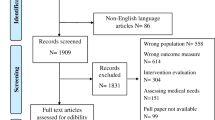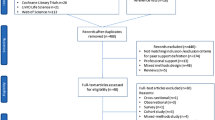Abstract
Native Americans experience cancer-related health disparities. Yet, little is known about the current cancer experience in one of the largest Native American tribe, Navajo. A qualitative study of among Navajo cancer survivors, in which focus groups and individual interviews included questions related to perceptions of cancer causes, prevention, and treatment, allowed us to evaluate several aspects of the cancer experience from the Navajo perspective. An experienced, bilingual facilitator led the discussions using a standardized guide. Discussions were audio-recorded, documented by field notes, translated, as needed, and transcribed. NVivo software was used to summarize major themes according to the PEN-3 and health belief models. Navajo cancer survivors (N = 32) were both males (n = 13) and females (n = 19) that had been previously diagnosed with a variety of cancers: colorectal, breast, ovarian, cervical, esophageal, gall bladder, stomach, prostate, kidney, and hematologic. Many survivors had accurate knowledge of risk factors for cancer. Barriers to screening and clinical care included language, expense, geography, fear, lack of information, skepticism related to Western medicine, and treatment side effects. While some survivors experienced familial support, others were isolated from the family and community due to the perspective of cancer as a contagion. However, resilience, hope, trust in select community organizations, a desire to restore balance, and to support younger generations were positive attributes expressed regarding the treatment and recovery process. These evaluations need to be replicated across a larger cross-section of the Native cancer survivor community.
Similar content being viewed by others
References
White MC, Espey DK, Swan J, Wiggins CL, Eheman C, Kaur JS (2014) Disparities in cancer mortality and incidence among American Indians and Alaska Natives in the United States. Am J Public Health 104(Suppl 3):S377–S387. https://doi.org/10.2105/AJPH.2013.301673
Clegg LX, Li FP, Hankey BG, Chu K, Edwards BK (2002) Cancer survival among US whites and minorities - a SEER (Surveillance, Epidemiology, and End Results) program population-based study. Arch Intern Med 162(17):1985–1993. https://doi.org/10.1001/archinte.162.17.1985
Risendal B, Dezapien J, Fowler B, Papenfuss M, Giuliano A (1999) Cancer prevention among urban southwestern American Indian women: comparison to selected year 2000 national health objectives. Ann Epidemiol 9(6):383–390
Gilliland FD, Hunt WC, Pardilla M, Key CR (2000) Uranium mining and lung cancer among Navajo men in New Mexico and Arizona, 1969 to 1993. J Occup Environ Med 42(3):278–283
United States Census Bureau (2010) American Indian and Alaska native profile of general population and housing characteristics [Summary file]. Retrieved from https://factfinder.census.gov/faces/tableservices/jsf/pages/productview.xhtml?src=bkmk
Foley D, Kinlacheeny JB, Yazzie D (2016) Navajo Nation Mortality Report, 2006-2009, Arizona & New Mexico Data edn. Navajo Epidemiology Center, Window Rock
Bea JW, de Heer H, Valdez L, Kinslow B, Yazzie E, Lee MC, Nez P, Dalgai S, Schwartz A (2018) Physical activity among Navajo cancer survivors, a qualitative study. Am Indian Alsk Native Ment Health Res 25(2):54–73
Scarinci IC, Bandura L, Hidalgo B, Cherrington A (2012) Development of a theory-based (PEN-3 and health belief model), culturally relevant intervention on cervical cancer prevention among Latina immigrants using intervention mapping. Health Promot Pract 13(1):29–40. https://doi.org/10.1177/1524839910366416
Scarinci IC, Beech BM, Kovach KW, Bailey TL (2003) An examination of sociocultural factors associated with cervical cancer screening among low-income Latina immigrants of reproductive age. J Immigr Health 5(3):119–128
White K, Garces IC, Bandura L, McGuire AA, Scarinci IC (2012) Design and evaluation of a theory-based, culturally relevant outreach model for breast and cervical cancer screening for Latina immigrants. Ethn Dis 22(3):274–280
Erwin DO, Trevino M, Saad-Harfouche FG, Rodriguez EM, Gage E, Jandorf L (2010) Contextualizing diversity and culture within cancer control interventions for Latinas: changing interventions, not cultures. Soc Sci Med 71(4):693–701. https://doi.org/10.1016/j.socscimed.2010.05.005
Green EC, Murphy E, Green EC, Murphy E (2014) Health belief model. In: The Wiley blackwell encyclopedia of health, illness, behavior, and society. Wiley, Chichester
Fusch PI, Ness LR (2015) Are we there yet? Data saturation in qualitative research. Qual Rep 20(9):1408–1416
Fereday J, Muir-Cochrane E (2006) Demonstrating rigor using thematic analysis: a hybrid approach of inductive and deductive coding and theme development. Int J Qual Methods 80–92. https://doi.org/10.1177/160940690600500107
Bradley EH, Curry LA, Devers KJ (2007) Qualitative data analysis for health services research: developing taxonomy, themes, and theory. Health Serv Res 42(4):1758–1772. https://doi.org/10.1111/j.1475-6773.2006.00684.x
Dein S (2004) Explanatory models of and attitudes towards cancer in different cultures. Lancet Oncol 5(2):119–124. https://doi.org/10.1016/S1470-2045(04)01386-5
Collie K, Kante A (2011) Art groups for marginalized women with breast cancer. Qual Health Res 21(5):652–661. https://doi.org/10.1177/1049732310383989
Sanderson PR, Teufel-Shone NI, Baldwin JA, Sandoval N, Robinson F (2010) Breast cancer education for Navajo women: a pilot study evaluating a culturally relevant video. J Cancer Educ 25(2):217–223. https://doi.org/10.1007/s13187-009-0036-7
Goldtooth-Begay C, Joe S, Hubbard-Pourier L, Canfield L (2005) Cancer knowledge, attitudes, and behavior survey of Navajo nation employees. Cancer Epidemiol Biomark Prev 14(11):2726s–2726s
Sanderson PR, Weinstein N, Teufel-Shone N, Martinez ME (2011) Assessing colorectal cancer screening knowledge at tribal fairs. Prev Chronic Dis 8(1):A16
Carrese JA, Rhodes LA (1995) Western bioethics on the Navajo reservation - benefit or harm. JAMA 274(10):826–829. https://doi.org/10.1001/jama.274.10.826
Carrese JA, Rhodes LA (2000) Bridging cultural differences in medical practice - the case of discussing negative information with Navajo patients. J Gen Intern Med 15(2):92–96. https://doi.org/10.1046/j.1525-1497.2000.03399.x
Flum DR, Stuart S, Wilcox M (2003) Processes and outcomes of care among Navajo women with breast cancer. JAMA 290(15):1996–1997. https://doi.org/10.1001/jama.290.15.1996-b
Lynch HT, Drouhard T, Vasen HFA, Cavalieri J, Lynch J, Nord S, Smyrk T et al (1996) Genetic counseling in a Navajo hereditary nonpolyposis colorectal cancer kindred. Cancer 77(1):30–35. https://doi.org/10.1002/(Sici)1097-0142(19960101)77:1<30::Aid-Cncr7>3.0.Co;2-R
Yost KJ, Bauer MC, Buki LP, Austin-Garrison M, Garcia LV, Hughes CA, Patten CA (2016) Adapting a cancer literacy measure for use among Navajo women. J Transcult Nurs 28:278–285. https://doi.org/10.1177/1043659616628964
Acknowledgements
We would like to thank the Navajo Nation Historic Preservation Department, Navajo Nation Human Research Review Board (NNIRB project # NNR-14.192), the Chapter House, Arizona Oncology Associates, and all the participants for their support of this project.
Funding
Financial support was provided by the following: National Institute of Health/National Cancer Institute U54CA143924 and P30CA023074; University of Arizona Faculty Seed Grant; Undergraduate Biology Research Program HHMI 52006942; and Northern Arizona University BRIDGES to Baccalaureate NIGMS1R25GM102788-01.
Author information
Authors and Affiliations
Corresponding author
Ethics declarations
Conflict of Interest
The authors declare that they have no conflict of interest.
Research Involving Human Participants
All procedures performed in the study involving human participants were in accordance with the ethical standards of the Navajo Nation Human Subjects Research Review Board (NNIRB project # NNR-14.192), Northern Arizona University Institutional Review Board, the University of Arizona Institutional Review Board, and with the 1964 Helsinki declaration and its later amendments or comparable ethical standards. Informed consent was obtained from all individual participants included in the study. This manuscript, including all aforementioned data and quotes, has been reviewed and approved by the Navajo Nation Human Subjects Research Review Board as a part of NNIRB project # NNR-14.192.
Additional information
Publisher’s Note
Springer Nature remains neutral with regard to jurisdictional claims in published maps and institutional affiliations.
Rights and permissions
About this article
Cite this article
Bea, J.W., de Heer, H.‘., Kinslow, B. et al. Perceptions of Cancer Causes, Prevention, and Treatment Among Navajo Cancer Survivors. J Canc Educ 35, 493–500 (2020). https://doi.org/10.1007/s13187-019-01487-5
Published:
Issue Date:
DOI: https://doi.org/10.1007/s13187-019-01487-5




